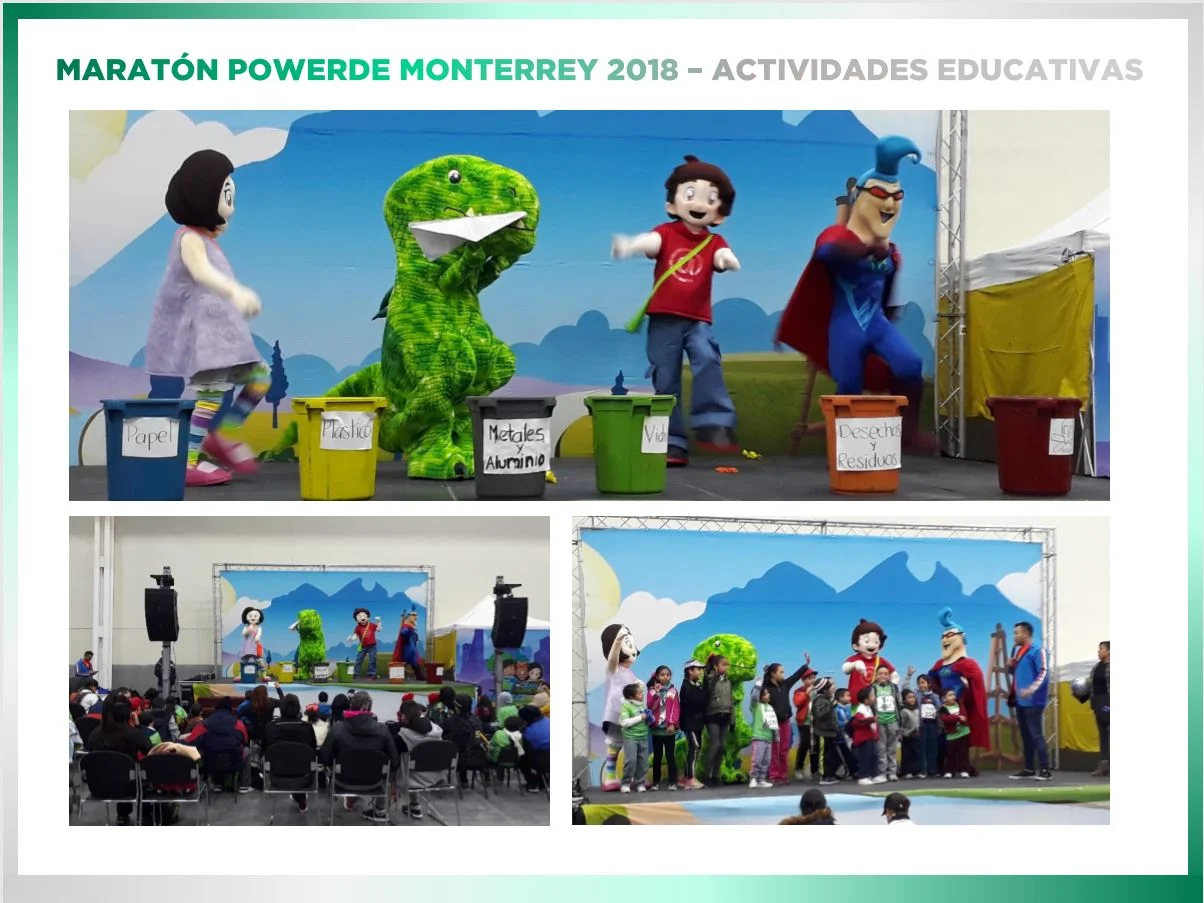EUGENE—March 14, 2019—The movement towards greater social and environmental responsibility in sport takes another international step forward as the Council for Responsible Sport (Council) announced that the 2018 Monterrey Powerade Marathon has achieved gold level certification. The 2018 event hosted participants in Monterrey, the largest city of the northeastern state of Nuevo León, México during the second weekend of December and is organized by the Association of Running Clubs of Nuevo León and Arca Continental.
The marathon is the second in México to achieve Council certification—the other is the México City Marathon (Evergreen, 2018), while over 160 events in eight countries have earned official recognition as responsibly produced events since the Council for Responsible Sport standards were launched in 2008. Gold level certification is attained when an event demonstrates it has implemented 75 percent or more of the version 4.2 Standards for Responsible Sport, including verification by an independent third-party.
“This is a great achievement for the Powerade Monterrey Marathon. We dedicate this success to the participants, who helped us achieve this goal. We are committed to continuing the development of more sustainable practices at our events,” commented executive director of the marathon, Jose Rodolfo Tijerina Leal.
Organizers diverted 80 percent of the waste materials generated at the 2018 event from the landfill.
“It’s encouraging to see more events across North America committing to the shared principles and actions of what we call ‘responsible sport’ and communicating their values to their audiences. The organizers of the Powerade Monterrey Marathon embraced the certification framework and brought it to life at the event professionally and creatively—we look forward to following how the Monterrey Powerade Marathon continues to set a positive example in future years.” Said Shelley Villalobos, managing director of the Council.
“87 percent of participants indicated that it was ‘very important’ to them that the marathon to ‘pursue initiatives to reduce its environmental impacts’ in a post-event survey”
Participants confirmed their desire for the marathon to ‘pursue initiatives to reduce its environmental impacts’ in a post-event survey—87 percent of survey respondents indicated it was ‘very important’ to them. Highlights and key results that earned credit towards the gold level certification included:
Social Highlights
The ‘Mi Gran Planeta’ (‘My Great Planet’) interactive educational space debuted for the first time at packet pickup in 2018.
The event procured a health insurance policy for all participants in the case of harm or injury
1,200 youth and their families participated in a ‘mini marathon’ of 4.2 kilometers
Packet pickup featured an interactive space for kids called ‘Mi Gran Planeta’ (‘My Great Planet’) featuring a live show, arts and crafts and education about ways to reduce harm to the planet in our daily actions
Organizers trained volunteers in person-first language and best practices for assisting visitors with disabilities
783 people used their race to help raise funds for charities through the ‘Corredores de Valor’ program.
Environmental Highlights
A procurement policy was created and shared with all exhibitors, vendors, sponsors and volunteers offering guidance and recommendations to minimize waste and enhance waste diversion efforts
78 percent of all waste materials generated by the event were diverted from the landfill through recycling and compost collection and separation, including plastic water bottles made from 100% recycled PET plastic collected for further recycling
Participants of the mini marathon received blankets made from recycled PET fibers—each blanket takes about 55 plastic bottles to make
Entirely eliminated the use of cellophane and plastic bags in the distribution of recuperation food for finishers—preventing an entire stream of waste at its source
Only promoted hotels with proven commitments to environmental best practices
Calculated the total greenhouse gases, or ‘carbon footprint’ of the event—both from travel by participants and by direct event operations
Mitigated the carbon footprint of direct event operations (6 metric tons carbon dioxide and equivalents) by purchasing compensations through MexiCO2, a carbon trading platform that supports verified carbon emission reduction projects in Mexico


